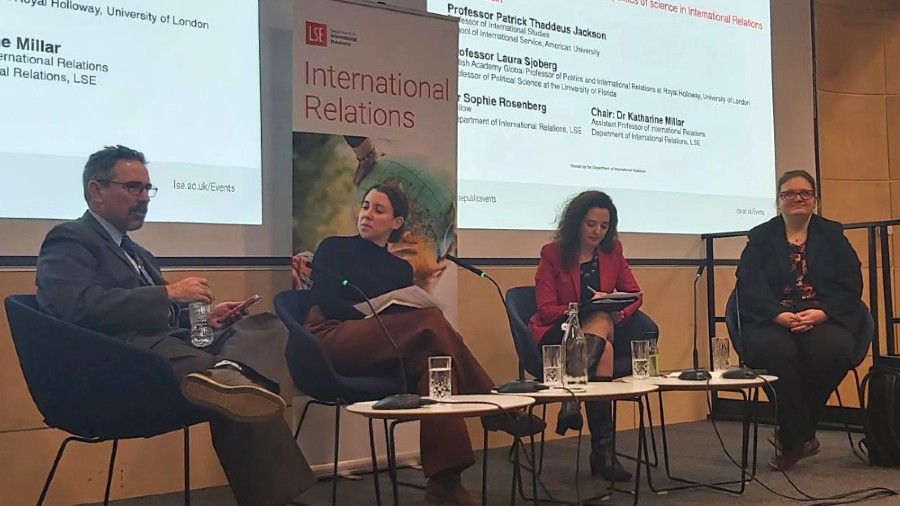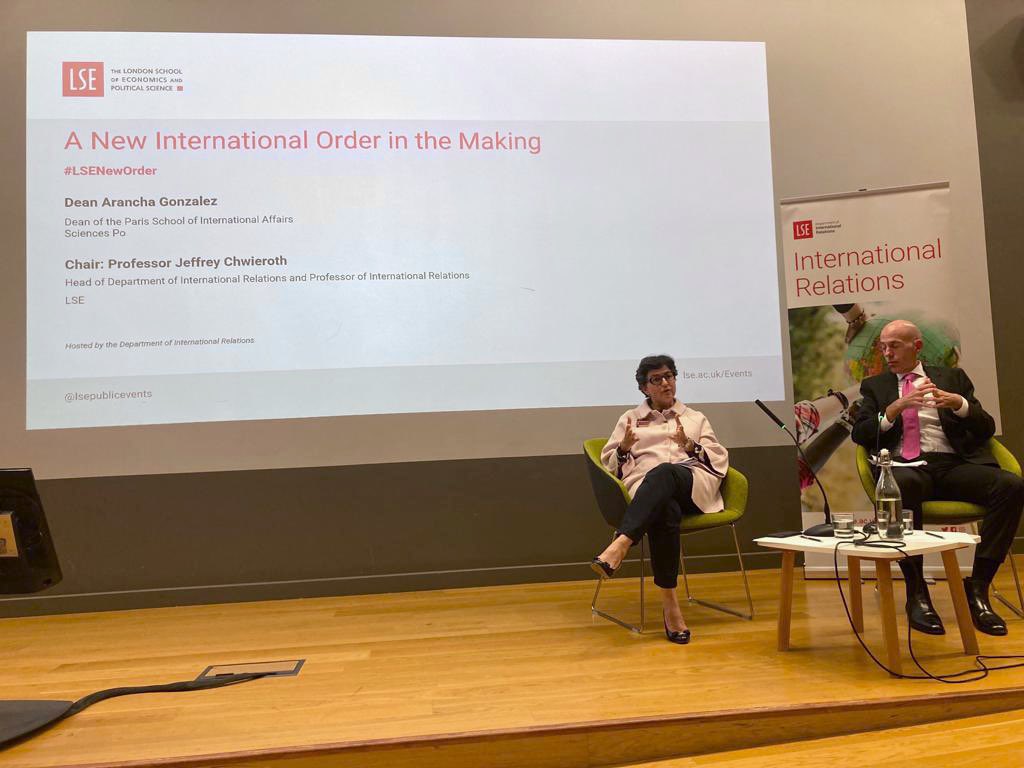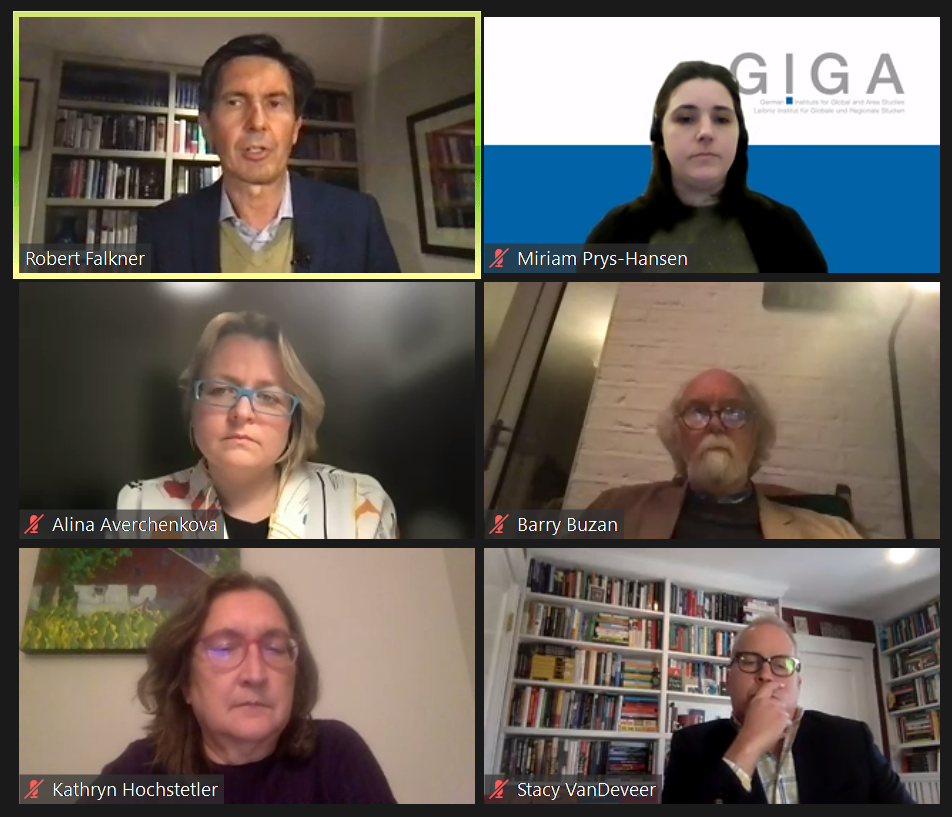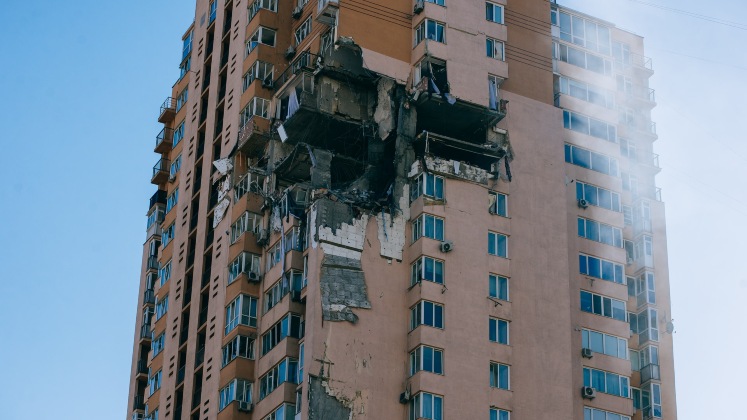On Thursday 16 February 2023, Roy Allison, Professor of Russian and Eurasian International Relations, and Director of the Russian and Eurasian Studies Centre at Oxford University gave the Martin Wight Lecture where he discussed his thoughts on the implications of the Russia-Ukraine war. The event was organised by Dr Jurgen Haacke, Associate Professor of International Relations at LSE, and chaired by Dr Federica Bicchi, Associate Professor of International Relations at LSE.
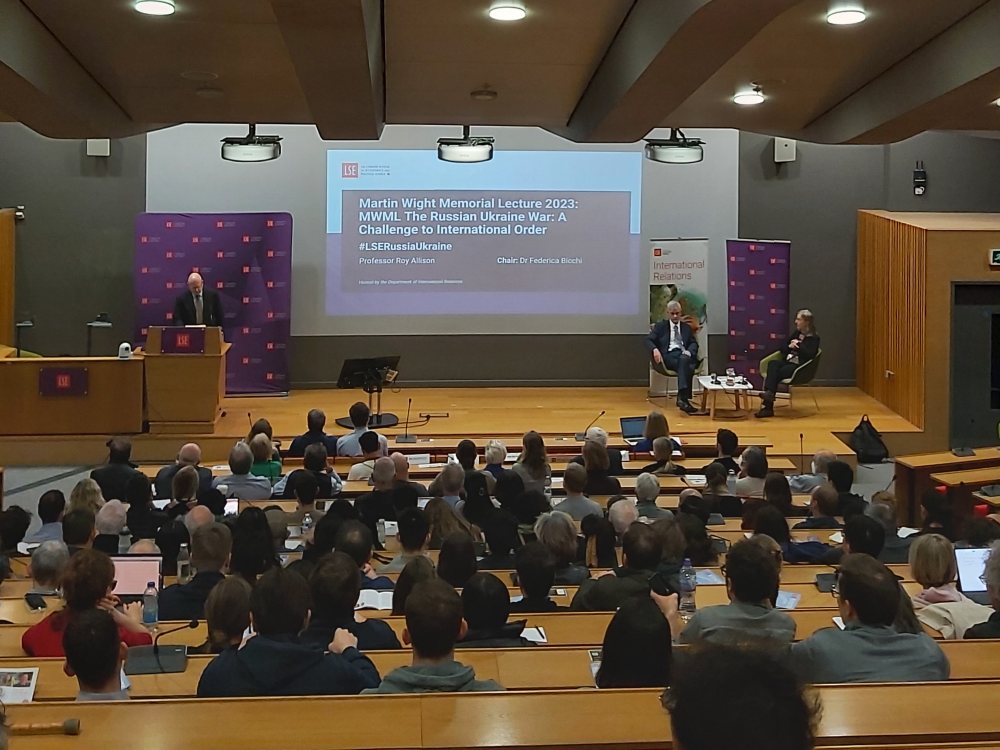
The lecture was arranged in memory of Martin Wight, who was Reader in International Relations at LSE 1949-62, and his contributions to the field of research in international relations theory. Wight belonged to the English school of IR theory and recognised the principles of sovereignty and non-intervention as the basis on which the international society of states rests. Professor Allison’s core argument rests on Wight’s enduring insights – that defending Ukraine’s sovereignty is important because it represents safeguarding the normative framework that regulates inter-state relations.
For Professor Allison, this war presents a grave challenge at two levels – the principles of international order set post-WWII and the European security architecture. He argues that Russia’s territorial revanchism through war in Ukraine is the culmination of the long-held differences between Russia and the West over core rules governing international order and the interpretation of international norms.
By brazenly invading Ukraine … a paradigmatic shift has occurred in Russia’s policy where it has positioned itself against the norms of international society
By brazenly invading Ukraine, Professor Allison argues that a paradigmatic shift has occurred in Russia’s policy where it has positioned itself against the norms of international society – respect of sovereignty of states and non-intervention – through the use of force. Preventing this, for him, requires using countervailing power of the collective West.
According to Professor Allison, Putin’s revanchist discourse has significant implications for the international system. Firstly, if other states condone the use of force for territorial expansion, the principle of territorial integrity will be an ineffective constraint against the forceful resolution of territorial disputes and the goal of territorial conquest. Secondly, a large group of non-western states, including the major G-20 states, would become complacent to expansionist claims of countries like China and could face similar consequences. This is because they seem to interpret the war in Ukraine as a ‘war of northern industrial states against each other’ and are reluctant to accept that the unravelling of core rules of international order through military force in the European theatre also represents a threat in other world regions.
The second level of challenge of the Russia-Ukraine war is for the European security architecture. Professor Allison argues that since Russia has already violated its previous commitments to the principles enshrined under treaties (such as the 1975 Helsinki Final Act, Paris Charter (1990) and the 2015 Minsk Agreements), it is difficult to conceive a new settlement that does not rely on Western defence guarantees to deter their renewed violation. In the near to medium term, the European security architecture mandates the West to adopt the approach of ‘deterrence and containment’.
Tacit codes of conduct must be arrived at to limit any dangerous escalation in West-Russian relations without compromising the core objective of preventing Russia’s invasion of Ukrainian territory.
In the meantime, tacit codes of conduct must be arrived at to limit any dangerous escalation in West-Russian relations without compromising the core objective of preventing Russia’s invasion of Ukrainian territory. These rules of conduct could prevent vertical escalation of the use of nuclear arms, or horizontal escalation by spreading into NATO territory. In fact, such tacit codes are already in the making in the form of language and notions used by both such as the red lines.
In response to the lecture, important questions were raised by Dr Bicchi and members of the audience. These included – whether or not the European states should have anticipated Russian invasion; whether it’s possible to understand Russia’s invasion without analysing Russia’s domestic politics; what lessons the West could learn from the war in its approach towards China; and the possible endgame for Putin’s Russia. Professor Allison brilliantly answered these questions, stating that the war in Ukraine was unthinkable for European countries and if timely collective response from the West had opposed Russian invasion of Crimea in 2014, 2022 would not have occurred. He acknowledged that domestic politics indeed plays a role in foreign policy but it depends upon the regime type. He also mentioned that the collective response from the West in the case of Ukraine could certainly deter China in its expansionist claims and speculated on the endgame scenarios for Russia.
The war, which represents a challenge to the norms of international society of states, will have deep implications on the working of the international order.
In conclusion, while Professor Allison advocates an uncompromising defence of Ukraine’s territorial integrity, he remains sceptical of whether or not any new agreement would be achievable. The war, which represents a challenge to the norms of international society of states, will have deep implications on the working of the international order. Moreover, his opinion on the need for a multi-normative order (that brings together norms from different major powers into the system) to account for the new dynamics of the international system holds crucial insights.
Event report by Satyam Singh, MSc International Relations



